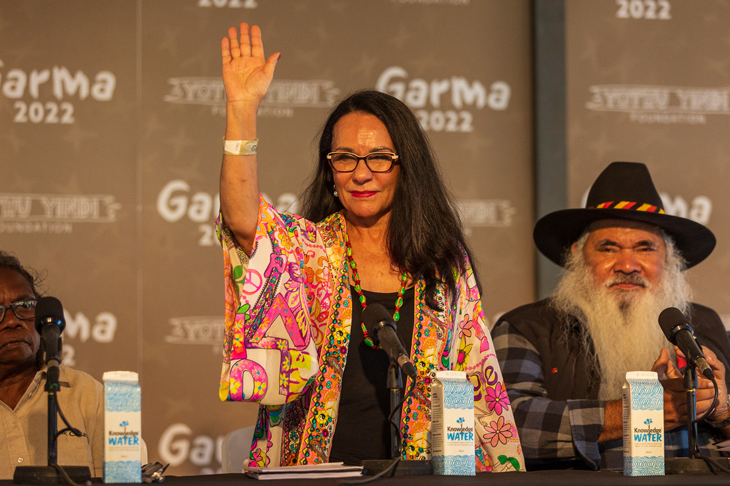You may not have realised it, but Australia is now in the grip of a new and deadly virus. It is called Constitutional Expert Syndrome or CES and its principal manifestation is an outbreak of people identifying themselves as constitutional experts. These luminaries can be easily identified by the fact that they rise in turn like robots to give their opinion on the proposed aboriginal Voice to parliament and, by a remarkable coincidence for lawyers, all express the same opinion, that the Voice is A Good Thing and so benign that it could not possibly pose a threat in any shape or form to our constitution or system of government. Early indications suggested that the virus could be confined to a single strain and was therefore manageable, but recent evidence shows that it is now multiplying at an alarming rate and producing ever more virulent variants. The two most prominent strains identified so far are Leading Constitutional Experts (LCEs) and Prominent Constitutional Experts (PCEs) although there are disturbing signs of an even more specific and deadly strain emerging, namely the Constitutional Law Expert (CLE). Early indications suggested that the original virus may have escaped from a university law school during some risky experiments divorced from the world of reality before it moved on to more receptive hosts in Melbourne and Sydney where it has flourished and obtained a good foothold. However, a rival theory is that it was deliberately created by the LCEs, PCEs and CLEs themselves and let loose to advance their own careers and egos with one eye on their bank account and the other on upcoming appointments to the Federal Court. But whatever its origins and the motives of those who incubated it, one thing is absolutely clear: its plague-like spread is now so extensive that no self-respecting third-rate polytechnic law school would dare let it be said that it does not have at least one LCE, PCE or CLE on its faculty. Accordingly, media outlets have an unlimited choice as to whom they will invite on to their next impartial and objective program about how wondrous the Voice will be. But the array of experts has two features in common: they all say the same thing, which is usually wrong, and not one of them has apparently ever been in a court of law or has the faintest idea of how the legal issues thrown up by the Voice are likely to be resolved.
This is the reason why, so far, the propaganda on the Voice, especially on the ABC, has been so one-sided and so pro-Voice. In fact, to bring you up to speed, here is a typical ABC news item on the Voice: ‘Here is the news from Gadigal country. A leading constitutional expert said today that the proposed Voice was perfectly constitutional and a very desirable reform, because it would only be giving advice and not making policy and could not possibly give rise to obstructive litigation, as nothing it did would be justiciable.’
So, here is what the experts get so wrong, and why you should ignore everything that is said by an LCE, a PCE or a CLE. The proposal is that the Voice may make ‘representations’ to parliament and the executive government on ‘matters relating’ to aboriginals. Note: the representations are to be made to both the parliament and the government. We can safely assume that the Voice will then actually make some representations on those matters; there would not be much point having it, after going through all that fuss, it if it does not make any representations. Let us also assume that the Voice says that a proposed uranium mine should not go ahead and that the government should stop it. That is clearly the sort of recommendation the Voice will make. The government considers this advice and decides that the development should in fact proceed in the national interest. One of its reasons is that a uranium mine is not a matter relating to aboriginals because the uranium would be used by everyone, not just aboriginals, and that the power is needed by the whole nation to provide energy for industry and power our new submarines. It is inconceivable that the Voice would simply accept this decision without protest or argument. It would challenge it in court. The Voice could clearly argue any of the following: that the issue is a ‘matter relating’ to aboriginals; the government did not consider the Voice’s representations properly or fully and did not accept the Voice’s evidence which it should have accepted. The Voice asks for a court hearing to show how wrong the government was. It also says that the government may have rejected its case, but the parliament accepted it and agreed with the Voice, so the court should follow the elected parliament. The mining company argues: this is not a matter relating to aboriginals but the whole country; the case against the project was too weak to justify a ban; and that the government was right and the parliament was wrong, so the project should go ahead.
The government, of course, says that this is footling detail. Of course it is detail, but the devil is in the detail. And the devil is that it must be obvious to everyone but an expert that the Voice is a formula for complete chaos, giving rise to endless argument, litigation, interminable delays in development projects and disputes between the parliament and the executive. And it will be a victory for activist judges and lawyers taking over the proper role of parliament and executive and we know how activist judges decide such issues. Worse still, it will give superior rights to members of one race and deny them to all other races and the community as a whole. Get ready for a lawyer-led recovery. Better still, the only vaccine against this plague is to defeat the referendum.
Got something to add? Join the discussion and comment below.
Get 10 issues for just $10
Subscribe to The Spectator Australia today for the next 10 magazine issues, plus full online access, for just $10.
You might disagree with half of it, but you’ll enjoy reading all of it. Try your first month for free, then just $2 a week for the remainder of your first year.















Comments
Don't miss out
Join the conversation with other Spectator Australia readers. Subscribe to leave a comment.
SUBSCRIBEAlready a subscriber? Log in